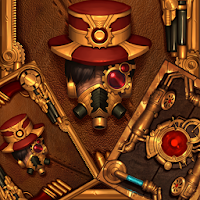"God of War's Success Hinges on Reinvention"
The God of War series has been a cornerstone of PlayStation gaming across four generations, captivating players since Kratos' vengeful journey began in 2005. Few could have predicted the trajectory of this iconic character over the next two decades. While many long-running franchises struggle to remain relevant, God of War has thrived by embracing change. The pivotal transformation came with the 2018 reboot, which shifted Kratos from the realm of Ancient Greece to the rich tapestry of Norse mythology. This move not only altered the setting but also revolutionized the gameplay and narrative style. Yet, even before this acclaimed reboot, Sony Santa Monica introduced smaller, yet significant changes that kept the series alive and well.
For God of War to continue its success, reinvention remains crucial. When the series transitioned to its Norse setting, director Cory Barlog expressed his interest in exploring other mythologies like the Egyptian and Mayan eras. Recent rumors of an Egyptian setting have reignited fan speculation, fueled by the allure of Ancient Egypt's distinct culture and mythology. However, a new setting is just the beginning. The next installment must reinvent itself as effectively as it did when transitioning from the Greek trilogy to the Norse saga, updating and enhancing the elements that made the series beloved.

The God of War series has always been open to evolution from one game to the next. The original Greek trilogy refined its hack-and-slash mechanics over a decade, culminating in the polished gameplay of God of War 3. By the end of the trilogy, Kratos wielded an enhanced magic system that complemented his melee combat, facing a diverse array of enemies. The PlayStation 3's superior capabilities allowed for new camera angles that showcased the game's stunning graphics in 2010.
The 2018 reboot shifted away from some elements of the Greek trilogy. The platforming and puzzle-solving sections, integral to the original games, were largely removed from the Norse games due to the new over-the-shoulder camera perspective. Puzzles remained but were adapted to fit the new adventure-focused design.
The Valhalla DLC for God of War Ragnarök marked a return to the series' Greek roots, both mechanically and narratively. The reintroduction of battle arenas, a staple of the original series, was adapted to fit the Norse setting. This mirrored the story, where Kratos, invited by the Norse god Týr to Valhalla, confronted his past, bringing his journey full circle.
The Norse iteration of God of War introduced numerous innovations. The Leviathan Axe's unique throwing mechanics, a combat-defining parry system with various shield types, and the magical spear in Ragnarök, which enabled faster, explosive attacks, were among the new features. These elements were essential for navigating the diverse landscapes and challenges of the Nine Realms.

While the changes in mechanics and exploration are evident, the most striking difference between the original trilogy and the Norse duology lies in storytelling. The Norse games delve into Kratos' emotional journey, exploring his grief over his deceased wife and his complex relationship with his son, Atreus. This narrative depth, contrasting with the more straightforward storytelling of the Greek trilogy, has been pivotal to the Norse era's critical and commercial acclaim.
God of War's shift in both gameplay and storytelling reflects a unique approach to franchise development. The creators view the Norse games not as sequels but as extensions of Kratos' journey, an approach that should guide future installments.
However, radical reinvention alone does not guarantee success, as seen with the Assassin's Creed series. Despite frequent changes in setting and period, Assassin's Creed has struggled to maintain fan loyalty across generations. The shift to an open-world RPG with Assassin's Creed Origins diluted the series' focus on its Assassin's guild lore. The narrative continuity established by Desmond Miles' story has been lost, and the new RPG elements have been divisive, criticized for content bloat and a drift from the series' stealth roots toward broader power fantasies.
Assassin's Creed has attempted to course-correct with 2023's Assassin's Creed Mirage, which returned to the series' Middle Eastern roots and a more focused gameplay style. This year's Assassin's Creed Shadows continues this trend by emphasizing stealth with the character Naoe, aiming to reconnect with the series' origins.
The mixed reception to Assassin's Creed's changes underscores the importance of maintaining a series' core identity. God of War's Norse reboot, while a significant departure, never lost sight of what made Kratos and the series compelling. It preserved the essence of the Greek trilogy's intense combat while building upon it with new elements like Spartan Rage options, diverse weapons, and varied combat options. These additions enhanced the series without straying from its foundational strengths, deepening the lore and maintaining a clear identity.
Regardless of whether the rumors of an Egyptian setting materialize, the next God of War must continue to evolve while preserving the elements that have made the series successful. The 2018 reboot focused on maintaining the high standards of combat established by the Greek trilogy. However, future games will likely be judged more by their storytelling, the true strength of the Norse duology. The evolution of Kratos from a rage-driven warrior to a nuanced father and leader has been central to the series' recent success. The next installment must build on this narrative strength while introducing bold innovations that could define the next era of God of War.
Latest Articles















![Roblox Forsaken Characters Tier List [UPDATED] (2025)](https://ima.hhn6.com/uploads/18/17380116246797f3e8a8a39.jpg)















